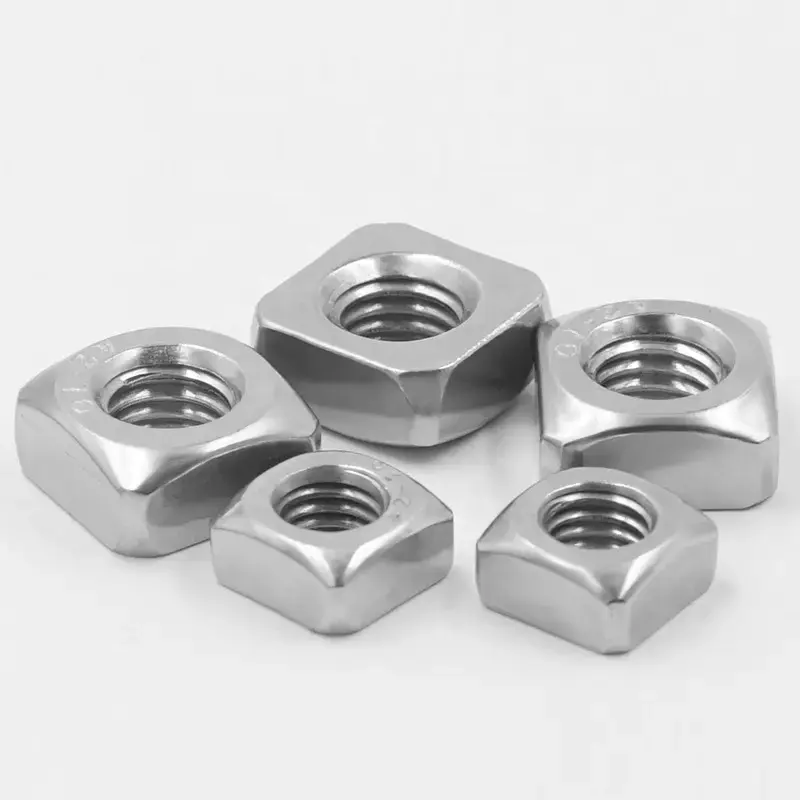

Understanding the Benefits and Applications of SS Stud Bolts in Various Industries
Des . 04, 2024 07:34 Back to list
Understanding the Benefits and Applications of SS Stud Bolts in Various Industries
Understanding SS Stud Bolts A Key Component in Industrial Applications
In the intricate world of engineering and manufacturing, specific components play crucial roles in ensuring the integrity and functionality of constructions. One such component is the stainless steel stud bolt, commonly referred to as SS stud bolt. This article delves into the significance, construction, applications, and benefits of SS stud bolts in various industries.
What is a Stainless Steel Stud Bolt?
A stud bolt is a type of fastener that features a uniform diameter and is typically threaded at both ends. Unlike regular bolts that come with a head, stud bolts are primarily used in conjunction with nuts. Stainless steel, an alloy known for its excellent resistance to corrosion and staining, is often chosen for manufacturing these bolts, making them suitable for a wide range of applications, particularly in harsh environments.
Construction and Specifications
SS stud bolts are manufactured from various grades of stainless steel, including 304, 316, and 316L, each offering unique properties that enhance their performance in specific situations. The choice of grade often depends on the environmental conditions they are expected to face. For instance, Grade 316 stainless steel provides superior corrosion resistance, making it ideal for marine applications or environments with high chloride exposure.
The standard lengths and diameters of SS stud bolts can vary, but they are often available in sizes that conform to industry standards such as ASME, ASTM, and ISO. This standardization ensures compatibility across various applications, facilitating ease of use in assembly and maintenance.
Applications of SS Stud Bolts
SS stud bolts are widely used across many sectors, including
1. Oil and Gas In this industry, SS stud bolts are critical for securing flanges and piping systems where high pressure and corrosive materials are involved.
2. Chemical Processing Due to their corrosion resistance, SS stud bolts are ideal for use in reactors, pressure vessels, and pipelines carrying aggressive chemicals.
3. Construction In architectural applications, SS stud bolts provide durability and strength, particularly in projects exposed to outdoor elements.
ss stud bolt

4. Marine The marine industry extensively uses SS stud bolts on ships and offshore platforms due to their resistance to saltwater corrosion.
5. Food and Beverage The food industry requires stringent hygiene standards, and SS stud bolts are favored for their easy cleaning properties and non-reactiveness with food products.
Benefits of Using SS Stud Bolts
The advantages of utilizing SS stud bolts are manifold
- Corrosion Resistance One of the most significant benefits is their ability to resist rust and corrosion, which extends the lifespan of the components they secure.
- Strength and Durability Stainless steel stud bolts offer strong tensile strength, making them reliable for high-load applications.
- Temperature Tolerance SS stud bolts can withstand extreme temperatures, making them suitable for various industrial processes.
- Aesthetic Appeal The polished finish of stainless steel offers an aesthetically pleasing look, essential in architectural applications.
- Ease of Maintenance Their resistance to staining and corrosion ensures that maintenance is simpler, reducing downtime and repair costs.
Conclusion
Stainless steel stud bolts are pivotal in various industrial applications, thanks to their robust mechanical properties and resilience to challenging environments. By combining strength, durability, and corrosion resistance, they serve as reliable fasteners that play a vital role in maintaining the integrity of structures and systems. As industries continue to evolve and face new challenges, the role of SS stud bolts will undoubtedly become even more critical in ensuring safety and efficiency in engineering applications.
Latest news
-
Premium Self Tapping Metal Screws: Strong & Easy Install
NewsAug.02,2025
-
Premium Fasteners Manufacturer | AI-Driven Solutions
NewsAug.01,2025
-
Hot Dip Galvanized Bolts - Hebei Longze | High Strength, Corrosion Resistance
NewsAug.01,2025
-
High-Strength Hot Dip Galvanized Bolts - LongZe | Corrosion Resistance, Custom Sizes
NewsAug.01,2025
-
Best Self Tapping Screws for Drywall - Fast & Secure Installation
NewsJul.31,2025
-
High-Strength Hot Dip Galvanized Bolts-Hebei Longze|Corrosion Resistance&Customization
NewsJul.31,2025

